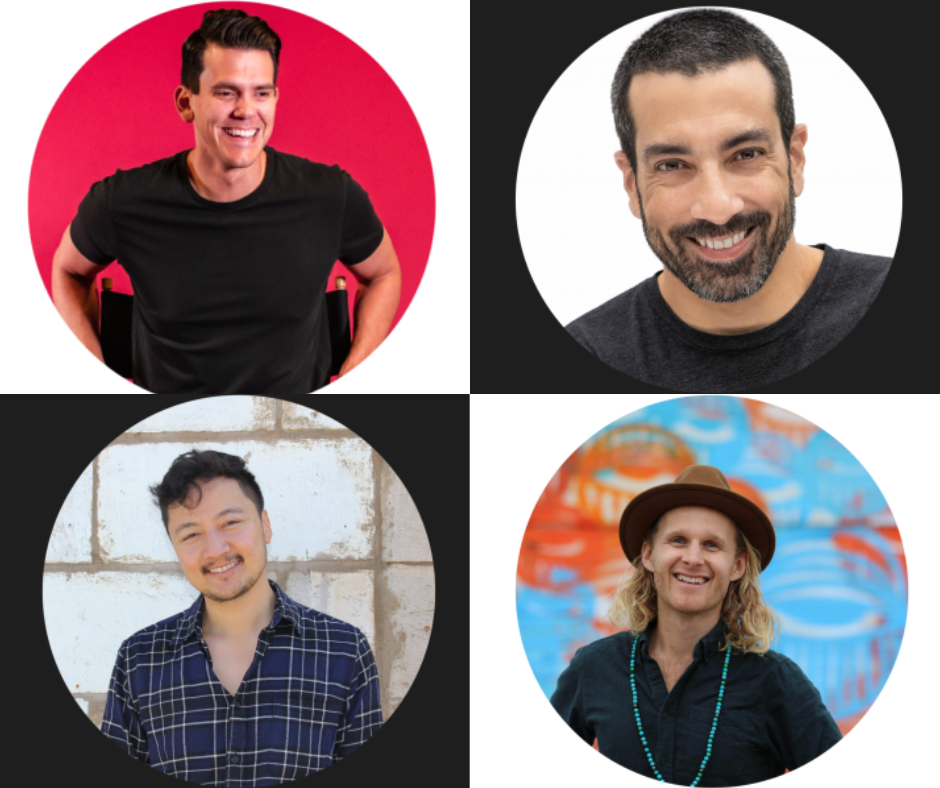Contributed by Kym Huynh, an EO Melbourne member, EO Global Communications Committee member, and co-founder of WeTeachMe. Kym is fascinated by entrepreneurs and their journeys, so he asked EO members from various chapters to share their experiences. Read his earlier posts on how EO members define success, the impact of core values, lessons learned from their best and worst partnerships, the best advice they’ve ever received and nine lessons learned from early entrepreneurial projects.
When asked, “What is failure in its greatest sense? What did you learn?” Here’s what EO members shared.
Failure means not taking that risk at all
Failure to me doesn’t mean taking a risk and not achieving the desired outcome. Failure to me means not taking that risk at all.
When you embrace risk, you have the opportunity of learning something invaluable about yourself (or others).
Failure, therefore, is knowing that you had the opportunity to move forward or fix a problem, but not taking the steps to do so.
— Adam Massaro, partner at Akerman LLP
Failure is not living your days the way you want to live your life
To look back on life (at any age) and realize you have more money than friends, more regrets than adventures, or more hate than love might all singularly qualify as failure. From my perspective, the culmination of all three might be the trifecta of failure in the game of life.
But life comes at you fast and failure on a daily basis might not be so easy to spot in ourselves. I’d submit the argument that failure, much like success, accumulates over time. It accumulates in the seemingly small daily choices of life. Our diet and exercise (#YoungerNextYear), our reading and conversations (#CompoundEffect), and how we prioritize our most valuable asset, our attention (#Indistractable).
The uncomfortable truth is this: How we live our days is how we live our lives. Therefore, failure is not living your days the way you want to live your life.
— Arnie Malham, EO Nashville, founder, Better Book Club; author and speaker, Worth Doing Wrong
Failure is not living a life with intentionality
Failure is not living a life with intentionality but living a life by the conditioned state of your societal, cultural and familial influences. Failure is when you operate in a default mode and where you don’t fully live in the present and enjoy the wonder that is life.
— Finnian Kelly, EO US West Bridge, founder, Intentionality.com
No success in life can compensate for failure in the home
I am of the belief that no success in life can compensate for failure in the home.
The wonderful thing about life is that we have agency, i.e., that we have the ability to choose, to craft a vision or determine our destination, to make intentional decisions that move us closer to our vision or destination, to reflect, learn and course-correct as we go, and to hopefully one day be at a place where we are at peace with our past, content with our present, and hopeful for our future.
Therefore, I suggest that life is not chance, but premeditation.
And with the basis that no success in life can compensate for failure in the home, we have within us the ability to build connected and successful families by giving the following: love, dedication, patience, sacrifice, service, and commitment.
And P.S.: Having a successful family is infinitely more fun than having a successful business.
— Kym Huynh, EO Melbourne, founder of WeTeachMe and Executive Assistant Institute
Failure in its greatest sense is not trying
One hears a lot of gobbledygook about failure in nearly every business success story and inspirational speaking event. For example: “My failures taught me (insert-important-business-lesson),” or, “My failures made me the person I am today.”
In my opinion, failure in its greatest sense is not trying, not starting that business, not approaching your crush, and not giving your idea an honest try. The inaction is something you live with for the rest of your life and may be one of your greatest regrets when it’s too late.
— Randall Hartman, EO Colorado, founder of Groundwrk
If you are not failing, you are not growing
I like the quote by Richard Branson, “If you are not failing you are not growing.” I think this is particularly true for entrepreneurs.
I remember needing to close a loss-making business and lay off all the staff in my home town of Bristol when I was 28. It was a harsh lesson about what can happen if one gets things wrong, but I learned a huge amount in the process that made me stronger going forward.
— Richard J Bryan, EO Colorado, founder, The Bryan Group
Failure is to not be my best, to never discover my potential, and to let happiness elude me
The first is to not be the best to the people who I care about. So often we get distracted and stressed and take it out on those people who matter the most. Family and friends should not pick up the burden of the business.
The second is to never discover what my personal potential is. I am not talking about living to the standards of others but to live to ones that I myself define.
The third is to let happiness elude me in lieu of ego-driven activities.
— Ross Drakes, EO Johannesburg, founder of Nicework Communications
This post originally appeared on Kym Huynh’s Leadership Toolkit blog and is edited and reposted here with permission.
For more insights and inspiration from today’s leading entrepreneurs, check out EO on Inc. and more articles from the EO blog.
Categories: Entrepreneurial Journey Lessons Learned

